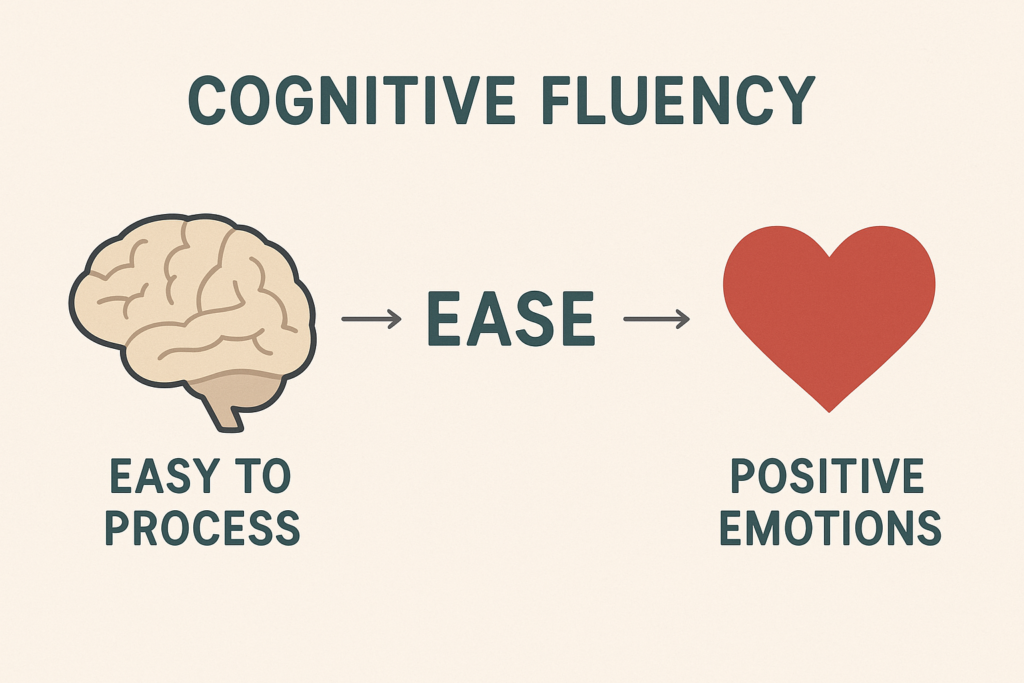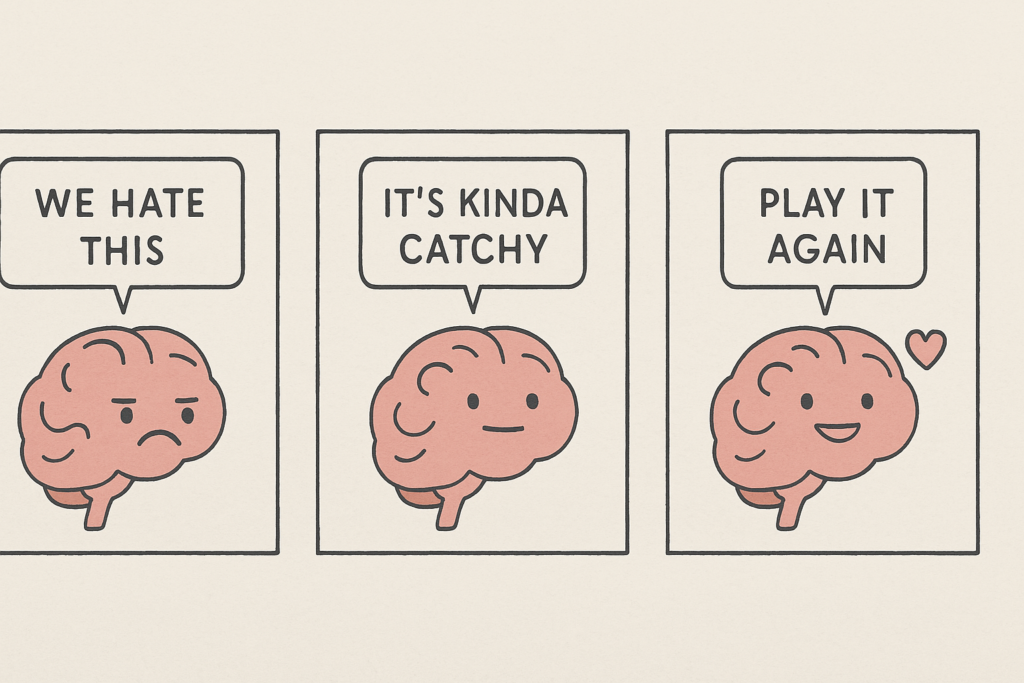Blame Psychology: The Mere Exposure Effect and Your Weird New Obsessions
April 4, 2025 | by Mindseek

Have you ever met someone who, at first, you swore you’d never be friends with? Maybe they laughed too loud, wore socks with sandals, or just seemed… off. And yet, a few months later—you’re texting them memes at 2 AM and calling them your ride-or-die. What changed? Welcome to the weird and wonderful world of the Mere Exposure Effect!
Turns out, your brain is wired to pull a sneaky move: the more it sees, hears, or experiences something (or someone), the more it starts to like it. Even if you thought you hated it at first.
So next time you’re jamming to a song you couldn’t stand two weeks ago… don’t blame your lack of taste. Blame psychology!
Let’s dig into why your brain keeps playing these little love games on you.
So… What Is the Mere Exposure Effect, Really?
Here’s what I think: the Mere Exposure Effect is like that quiet coworker who shows up to every meeting. You don’t pay much attention at first. But after a while, their face, their jokes, even their odd lunch choices start feeling… kind of endearing.
In scientific terms, the Mere Exposure Effect says that the more we’re exposed to something (or someone), the more we tend to like it. Even if we weren’t a fan to begin with.
It’s not magic. It’s familiarity. And your brain loves familiarity like a cat loves knocking things off tables.
Why Does Your Brain Fall for This Trick?
Alright, let’s geek out for a second—but in plain English. There’s this thing called cognitive fluency. (I know, it sounds like a workout for your brain, but stick with me.)
Cognitive fluency just means the easier something is to process, the better it feels. Your brain is basically lazy—it likes things that don’t require a lot of effort to understand.
So when you’re first exposed to something new—say, a weird flavor of chips or an edgy TV show—it feels awkward. Your brain is on high alert, thinking, “Do we trust this?”
But after a few encounters? Your brain chills out.
“Hey, I know this. No need to panic.”
And that feeling of ease translates into positive emotions. Boom. You start to like it.

So next time you catch yourself secretly enjoying a song you used to hate? Blame cognitive fluency. Not your lack of musical taste.
Some Real-Life “Ohhh That Makes Sense” Examples
- Brand loyalty: Ever wondered why you pick Coke over some no-name soda? You’ve seen it a million times. Your brain says, “Ah, familiar = safe. Let’s stick with this.”
- TV Shows: I once thought The Office was the dumbest show on TV. (Don’t come for me.) But after my friends kept quoting it and it kept autoplaying after my shows, I gave in. Now? “Bears. Beets. Battlestar Galactica.” Enough said.
- People: Sometimes the person you end up dating isn’t the one who swept you off your feet at first glance. It’s the one who showed up again… and again… and again. (Hey, persistence has science on its side!)
But Can Too Much Exposure Be… Bad?
Short answer? Yes.
It’s like eating pizza. First slice? Heaven. Fifth slice? Regret. Seventh slice? Existential crisis.
Same thing happens with songs, people, places, you name it.
Psychologists call this the Overexposure Effect—basically, when too much familiarity starts breeding irritation instead of affection.
Ever had a friend who texted way too much? Or a commercial that played so often you seriously considered throwing your TV out the window?
Yeah, that’s when the Mere Exposure Effect turns from “Hey, I like this!” into “Make it stop.”
How You Can Actually Use the Mere Exposure Effect (Without Annoying Yourself)
Alright, let’s cut to the chase. Here’s how you can make the Mere Exposure Effect work for you:
1. Ease into New Habits
Want to start running but hate every second of it? Start small. A 5-minute jog. A slow stroll around the block.
Expose your brain gently, again and again. Over time, it’ll stop seeing it as a threat—and start associating it with comfort (or at least less suffering).
2. Strengthen Relationships
Trying to build a deeper friendship or connection?
Regular low-pressure hangouts work wonders. You don’t need epic, life-changing moments. Just be there. Show up. Familiarity quietly does the heavy lifting.
3. Make Big Changes Feel Less Scary
New job? New city?
Instead of overwhelming yourself, ease into it. Visit the new neighborhood. Work part-time before going full-time. Give your brain tiny exposures until the big change feels—well, less huge.

Final Thoughts: Familiarity Is Sneaky (But Useful)
So here’s the truth:
Our brains are sneaky little creatures. They crave the familiar, even when they pretend to love excitement and novelty.
The Mere Exposure Effect teaches us that what’s familiar feels safe. And what feels safe? We start to love. It’s why that annoying song becomes your anthem. Why you end up loving your tiny, creaky apartment! Why that weird TV show becomes your comfort show!
At the end of the day, exposure shapes affection. And knowing that? It’s like getting the cheat codes to your own brain.
So tell me—what’s one thing you hated at first but now love (maybe a food, a TV show, a person?) Let’s have some confessions in the comments.
RELATED POSTS
View all




Leave a Reply